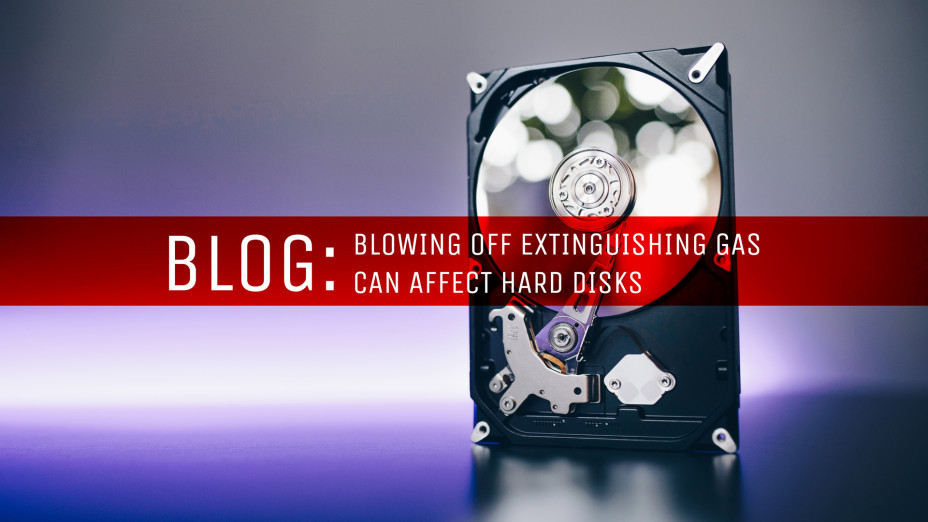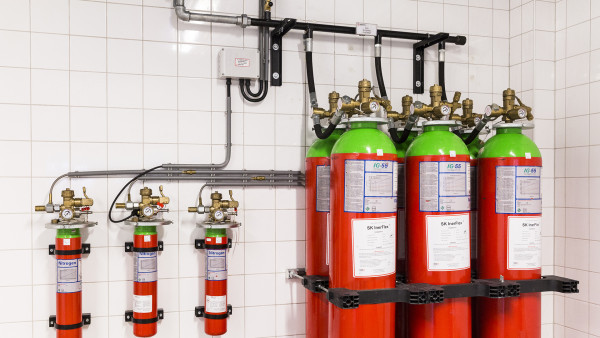Extinguishing gas installations have been installed on a large scale in computer, IT, data storage rooms over the past decades. The design of these systems and components meet the relevant product and system standards, such as EN, ISO, and NFPA. These installations also meet national laws and regulations and / or insurance requirements. Recurring inspections and maintenance requirements of the aforementioned standards ensure the reliable operation of these fire extinguishing systems throughout their lifespan. The purpose of a fire extinguishing system in such a room is to quickly detect and extinguish a fire. The derived objective is to cause the least possible collateral damage and / or downtime. This ensures continuity and protects data and equipment against damage.
In recent years, some failures of hard disks have been known. Disturbances that may result from blowing off extinguishing gas in the event of a fire or test in the room concerned. This concerns the corresponding high-frequency noise level. The problems described relate only to high-pressure systems: Inergas, Argonite, Inergen, etc. with and without I-Flow technology.
Tests conducted under the guidance of the European Association Eurofeu (www.eurofeu.org) in collaboration with test laboratories and suppliers of hard disks, learn that:
- A sound pressure level approaching 110 decibels can interrupt the operation of a hard disk and lead to permanent failure of the hard disk;
- The sound pressure during the extinguishing of the extinguishing gas when the fire extinguishing system or acoustic sources (alarms) are activated can influence the hard disks;
- Although the phenomenon occurs with all brands of hard disks, there are differences in the extent of the effect on the different types of hard disks. "Enterprise class" hard drives were less sensitive to these tests than the "near-line-class" hard drives.
The following was noted with regard to the effects:
- The use of a damper-blow nozzle combination has positive influences;
- The damper-blow nozzle combination should not be aimed at the hard disk;
- The distance between the silencer nozzle assembly and the hard disk must be as large as possible, as permitted within the applicable standards;
- Reducing noise levels of alarms has positive influences. Mechanical-pneumatic alarms are more often the cause than electronic alarms. Mechanical-pneumatic alarms are not used in the Netherlands for extinguishing gas systems in IT rooms (in contrast to Germany where this is frequently the case);
- Installing discs in soundproof enclosures reduces observed effects;
- Use patented software to minimize the tolerance of hard drives.
What now:
If there are concerns about the vulnerability of the hard disk, we recommend a controlled 'shut down' where the hard disks are first switched off before the extinguishing gas system is activated and with certain functional tests. The latest generation of Solid State Drives (SSDs) are, due to the lack of mechanical components, far less susceptible to external influences.
In addition, the placement of dampers on the blow nozzle or a damper-blow nozzle combination is recommended. In this case, the manufacturer issues a substantiated guarantee of the occurring sound pressure at the nozzle during an extinguishing. If there are very outdated systems or more expensive maintenance moments (such as inspections of cylinders), replacement with modern systems can also be a good alternative.

